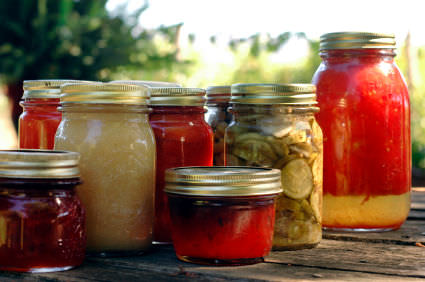
Two years ago, 48-year old Marian Bolum got the flu. But instead of just causing a week in bed, the virus went straight to her heart, putting her in the hospital with congestive heart failure. She almost died.
Any food with salt was out of the question. “I grew up with canning and preserving. We always had a garden and we didn’t eat processed foods,” Marian explains. So when she came home from the hospital, her husband was able to feed her by simply reaching for her already low-sodium canned goods.
“When I researched my condition on the internet, it said I have a life expectancy of five years. So I thought, what could I do to help people?” She decided then to reach out and teach people to eat better.
Farm to Jars is the result. It’s a home canning and food preservation educational program that Marian teaches at colleges, homes, corporate events, farm markets, health expos, culinary stores, and as part of the Penn State Cooperative Extension course curriculum.

Although Marian has been preserving her own food for years, she decided to go a step further. She took the food preserver training course at the Cornell University Cooperative Extension and is now the only certified Master Food Preserver in Bucks County. This lady knows how to put up food.
“I have two goals when I teach my classes,” she explains. “The first is for each person to go home with confidence, knowing how to preserve their food. The second is to teach them the importance of supporting local farmers and markets, and to know where their food is coming from and what they are eating.”
To be honest, this writer is a little intimidated when she hears the word “canning.” I have images of hot August days, standing over the stove for hours on end, and still worrying whether I’ve done it right. I did not grow up with it.
So when I interviewed Marian, I brought my fear and skepticism. But now I’m excited. It’s not just about canning either. Preserving means freezing (I can do that!) and dehydrating too.
Marian advises to start in a small way. “Look at what your family likes and eats, and start there. Or look at what you typically buy in the freezer aisle.” (And she’s not talking ice cream; think vegetables.) Preserve in sizes that fit your family’s eating patterns—like individual portion sizes or enough to feed a family of four for dinner. Then plan, and buy what you need.
 And for Marian, it is about buying local and fresh. “You know where your raw product comes from when you buy straight from the farm.” Over the years she has developed personal relationships with area farmers whom she trusts, and who will call her when the crop comes in so she can buy the quantities she needs. Because rule number oneis if the raw product doesn’t taste good, preserving it won’t make it better.
And for Marian, it is about buying local and fresh. “You know where your raw product comes from when you buy straight from the farm.” Over the years she has developed personal relationships with area farmers whom she trusts, and who will call her when the crop comes in so she can buy the quantities she needs. Because rule number oneis if the raw product doesn’t taste good, preserving it won’t make it better.
Let’s start easy. Refrigerator pickles, good for up to a month in the fridge. “It’s not just for cucumbers,” Marian says. “On Sunday I look at the vegetables I have left over from the week—it could be carrots, celery, peppers, green beans, zucchini, anything.” Take a jar, put all the vegetables in and pour the brine over it. The recipe couldn’t be simpler: vinegar, sugar and salt (to taste). Then add flavorings like pickling spices, lemon, fennel seeds, anise, garlic or onions. You can use different vinegars too like apple cider vinegar or white wine vinegar. Then put it in the fridge. It’s only 24 hours from “vine to brine.”
Want to dehydrate the lovely peaches now in season? You don’t need to go out and buy a dehydrator. All you need is an oven. Slice the fruits or vegetables as thin as possible and place them on a cooling rack in the oven. That way air can circulate around them and remove the moisture faster. Put the oven on the lowest temperature and leave the oven door open a little. Then check on it every few hours until it’s at the consistency desired.
You can dry just about anything—apples, corn (taking the kernels off the cob), tomatoes, hot peppers, zucchini. Marian likes to take the tomato pulp left over after a puree, lay it out on baking sheet and dehydrate it. Then she puts it in a spice mill, crushes it into a powder and uses in soups, stews, and salad dressings.
This time of year the corn is coming thick and fast. How to prolong the joy of fresh sweet corn? Drop the cob into boiling water and blanch it for 30-50 seconds. Then immediately immerse it in ice water for the same amount of time. Put it in a freezer bag with butter, herbs and garlic, and seal it well. When it’s cold and snowy, and you yearn for summer, take it out of the freezer and drop the whole bag into boiling water to finish cooking.
Think you’re ready for the next step—canning? Then it’s time to sign up for a class and learn the basics. All of Marian’s classes are hands-on with her demonstrating too. Start with simple jams, she advises. Then move onto to tomatoes or pickles, both of which are low acid foods that require a hot bath of 212°F to properly process.
You’ll need to invest in a couple of utensils and a good canning pot, as well as the jars, lids, pectin and such. Follow proven canning recipes like those from the Cooperative Extensions or the Ball Blue Book, not just something off the internet. Once again, start with what your family likes, then assess at the end of the year. What did we eat—and like—and what is still sitting on the shelf?
When you take a class with Farm to Jars, you get an added bonus. “If you email me with the subject line ‘Help me,’ I’ll know you’re in the middle of it and really need help,” says Marian, promising to get back to the canner immediately.
 Marian and her family live in Yardley, along the river, about 10-15 minutes from the closest supermarket. How easy is it to can? “In the time it would take for my husband to go to the supermarket to buy a jar of organic grape jelly, I can make it—and for a lot cheaper,” says Marian. Really?
Marian and her family live in Yardley, along the river, about 10-15 minutes from the closest supermarket. How easy is it to can? “In the time it would take for my husband to go to the supermarket to buy a jar of organic grape jelly, I can make it—and for a lot cheaper,” says Marian. Really?
“If I already have the jars, the 100% juice, sweetener and pectin, I can process the whole thing in that same time and make six jars.” What does it involve? First she sterilizes the jars in boiling water for 10 minutes while she has another pot going to make the jelly. By the time the jelly is ready, the jars are ready. After putting the jelly in the jars and sealing them, they go into a hot water bath for 10-15 minutes. Done. You’ve got to admit it’s tempting.
The real temptation, believes Marian, is that with preserving you are in control. You know where your food is coming from and what you and your family are eating.
To learn more about Farm to Jars, or to have Marian come to your home, school or children’s group, visit her website or Facebook page, or email her at farmtojars
Here are some of Marian’s upcoming classes:
August 15 – Whole Foods – 1 pm – 3 pm – “Jammin together with Kids”
Contact – www.wholefoodsmarket.com/events?store=6672
August 19 – Kitchen Kapers – 6:30 pm-8:30 pm – “Tomatoes & Salsa”
Contact – www.kitchenkapers.com/cookingclasses.html
August 20 – Terra Living Kitchen 6:30 pm-8:30 pm – “Tomatoes”
Contact – terramomo.com/events
August 23 – The Farm Cooking School – “High Acid Foods”
Contact – thefarmcookingschool.com/
September 17 – Terra Living Kitchen – 6:30 pm-8:30 pm – “Pickles”
Contact – terramomo.com/events
October 4 – Bucks County Community College – 10 am – 1 pm – “Preserving Apples”
Contact – www.bucks.edu/academics/coned/
October 15 – Terra Living Kitchen 6:30 pm-8:30 pm – “Soup’s On”
Contact – terramomo.com/events
October 29 – New Hope/Solebury Community School – 6 pm-9 pm – TBA
Contact – www.ssreg.com/csnhs/
November 5 – New Hope/Solebury Community School – 6 pm-9 pm – TBA
Contact – www.ssreg.com/csnhs/
November 12th – New Hope/Solebury Community School – 6:30 pm – 9 pm – TBA
Contact – www.ssreg.com/csnhs/
November 15 – Bucks County Community College – 10 am – 1 pm – “Cranberries”
Contact – www.bucks.edu/academics/coned/
November 18 – New Hope /Solebury Community School – 6:30 pm – 9 pm – “Up cycling Wool Sweaters into Cozy Lined Wool Mittens”
Contact – www.ssreg.com/csnhs/
November 19 – Terra Living Kitchen – 6:30-8:30 pm – “Fall Favorites”
Contact – terramomo.com/events
December 5 – Bucks County Community College – 6 pm – 8:30 pm – “Gifts in a Jar”
Contact – www.bucks.edu/academics/coned/
December 6 – Bucks County Community College – 10 am – 1 pm – “Up cycling Wool Sweaters into Cozy Lined Wool Mittens”
Contact – www.bucks.edu/academics/coned/

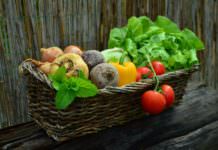


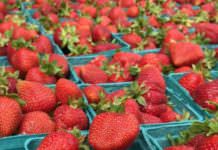

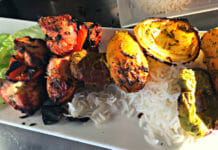

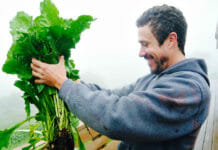
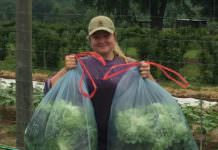
![What we’re reading [Oct 16 2017]](https://www.buckscountytaste.com/wp-content/uploads/2017/10/coffee_macbook_reading_pexels-photo-414630-218x150.jpeg)


[…] Farm to Jars | Bucks County Taste http://bucksctynew.wpengine.com/So when she came home from the hospital, her husband was able to feed her by simply reaching for her already low-sodium canned goods. “When I researched … It's a home canning and food preservation educational program that Marian teaches at colleges, homes, corporate events, farm markets, health expos, culinary stores, and as part of the Penn State Cooperative Extension course curriculum. … The recipe couldn't be simpler: vinegar, sugar and salt (to taste). […]
[…] Get cooking, the old way, at the Stockton Market with one of their Summer Preserving Classes, taught by Farm to Jars. The next one is this Wednesday, June 24 between 6 and 8 pm, and you’ll learn to make Blueberry Lavender Honey Jam (seriously, that sounds delicious…). [Learn more about Marian Bolum and Farm to Jars at our post here.] […]
[…] Last weekend, I had these amazingly good pickled tomatoes on my burger, and so now I’m a little obsessed. That’s why this workshop at Blue Moon Acres in Pennington, despite it being a little outside of Hunterdon, is on the list. Plus, our sister site, Bucks County Taste had a nice write-up about the instructor, Marian Bolum of Farm to Jars. You can read it here. […]
[…] workshop on August 24 from 6 – 8 pm. Learn how to make fresh pasta with the founder of Farm to Jars, Marian Bolum. There’s an early bird discount if you register by Sunday, August […]
[…] on August 24 from 6 – 8 pm. Learn how to make fresh pasta with the founder of Farm to Jars, Marian Bolum. There’s an early bird discount if you register by Sunday, August […]
[…] workshop on August 24 from 6 – 8 pm. Learn how to make fresh pasta with the founder of Farm to Jars, Marian Bolum. There’s an early bird discount if you register by Sunday, August […]